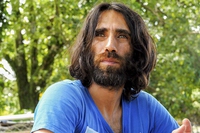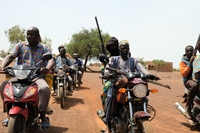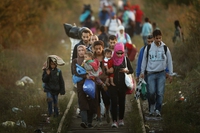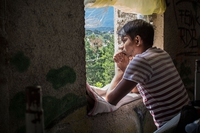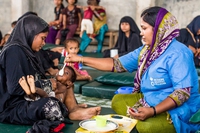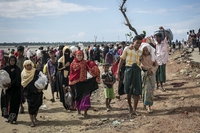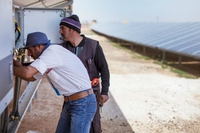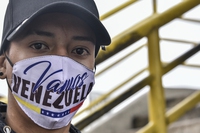
Venezuelan refugees caught between coronavirus and the desire to return home
Venezuelan refugees are vulnerable to the worsening outbreak in South America: while coronavirus doesn’t discriminate, it does affect some people more than others.
Venezuelan refugees are vulnerable to the worsening outbreak in South America: while coronavirus doesn’t discriminate, it does affect some people more than others.
Behrouz Boochani returned to being a free man during the course of this interview. The Kurdish writer was imprisoned by the Australian government in Papua New Guinea for six years.
Already torn apart by desertification, Burkina Faso also faces the terrorist threat. Attacks exacerbate inter-communal clashes and drive people to flee. Read the second part of the reportage on a country fighting for land and integrity.
What holds true whether we’re discussing migration or the environment? That “we’re suspicious of anything that shows empathy, goodness or righteousness,” says author and journalist Roberto Saviano. We interviewed him for the launch of his book There are no taxis in the sea.
The Global Compact for Safe, Orderly and Regular Migration was signed by 164 nations in Marrakech. This is what the non-binding agreement that encourages international cooperation stipulates.
Travelling across the new route used by migrants to cross the Balkans and reach Trieste in Italy, a reportage that documents the social, economic and political changes of the countries along the way.
The countries hosting the most refugees aren’t the wealthy, Western ones. An overview by NGO Action Against Hunger reminds us that refugees and internally displaced people are far from being safe.
The Myanmar army has condemned a group of soldiers for human rights violations against the Rohingya people for the first time ever.
Rohingya women who have escaped from Myanmar are forced to live in brutal conditions and are victims of unspeakable violence. Someone who visited the refugee camps in Bangladesh told us about what they saw there.
The solar plant in Jordan’s Azraq refugee camp has started to produce energy, allowing Syrian refugees in the camp to have electricity in their tents. It’s the world’s first refugee camp to be powered by renewable energy: a 2MW plant managed by the UNHCR and financed thanks to the Brighter Lives for Refugees campaign launched
